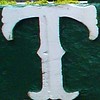The future of the future of the future
Ok. An original post this may be not. But passing on high value information it is. And this is all thanks to the smart ol group at paidContent who supply me with a steady stream of interesting links.
Here are links to 3 .pdf files entitled:
1. The Age of Engagement by Morgan Stanley read the article (pdf)
2. Television Networks in the 21st Century Deloitte read the article (pdf)
3. Synpase: The Future of News Media Center read the article (pdf)
Other news. Yesterday, i had the pleasure of interviewing Irene van der Schleij, who is the mother of a good friend of mine, and also a cultural worker here in the Netherlands. She gave me her opinions on living in Holland. She has lived here all here life and has two kids now in the 30s. She gave me a fantastic book by Hans Kaldenbach called "Doe maar gewoon" 99 tips to get on with Dutch people, a book written for "alloctone" which means foreigners, mainly of Turkish, Marrocan, and South American, Antilles background. It is a fantastic list of how some Dutch people are.
tip 12: Genieten lijkt wel een zonde (enjoyment seems like an exception. Dutch people seem to have inbuilt brakes that stop them from fully enjoying themselves. They say it has something to do with Calvinism....)
tip 18: Leuk: brutale kinderen (it's good if dutch kids make rude comments = kids that can be rude become self-confident and wise(not sure about that one!))
tip 72: Voor de echte straf eerst een waarschuwing (For a real punnishment, first a warning)
tip 88: Het uiten van gevoelens (expression of feelings. Dutch people are not allowed to get really angry. Crying has to stay really short only after a death or separation. They talk about their emotions more than express them. In a conflict, Dutch people have to stay 'netjes'(clean). You cannot get emotional which leads to people staying angry for a long time after a conflict.
I now want to see an international grid of this book. We all come from somewhere. And i believe each country imprints a psychology which we take for granted as being "Indian, American, Chinese,etc". I'm up for questioning our deeply held country identities. Is this racist? Only stupid people will think that. Isn't it about time that we collected a big 'ol list of the good, the bad, the ugly and beautiful sides of where we come from to understand each other better and help each other get closer. De-indentify to re-identify.








































